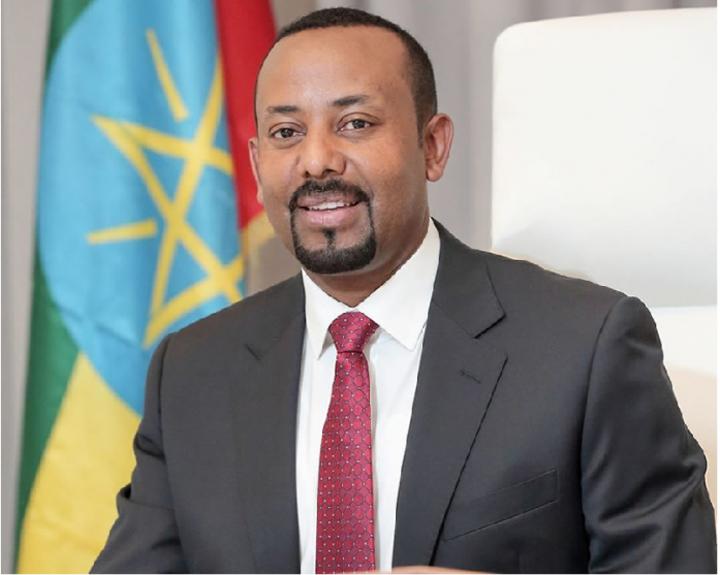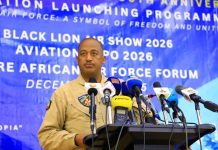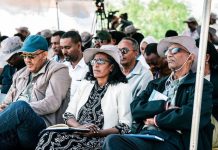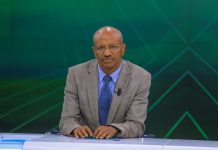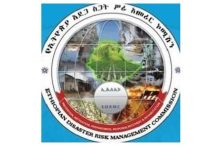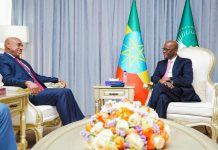Africa-Press – Ethiopia. taff Reporter
Despite the demanding situation in the country and the busy hours in the hands of the premier, he is once again re-emphasizing on the importance of a meaningful economic integration within East African countries as a sustainable strategy to effectively address Africa’s undesirable economic dependence on western countries.
As part of his diplomatic effort to strengthen economic integration between East African countries , over the last couple of weeks, Prime Minister Dr. Abiy Ahmed paid official visits to Eretria, Turkey, Uganda, Rwanda, hosted the South Sudanese President Salva Kiir Mayardit, held discussions with the President of Djibouti Ismail Omar Guelleh.
Although the Horn of Africa and the larger East Africa is marred with political and economic instabilities primarily caused by terrorism, intervention of western powers into the internal affairs of the countries, recurrent drought, ethnic based conflicts, escalating foreign debt and economic over dependence on developed countries, the regions is endowed with huge natural resources that could be tapped and developed for the benefit of these countries.
For instance, Djibouti, Somaliland, Kenya, Eretria have port infrastructures and facilities that can be of higher value for promoting expanded trade between these countries and landlocked Ethiopia, Uganda, Rwanda and South Sudan. Furthermore, Ethiopia has highly advanced aviation networks and services as well as railroad and all weather roads that connect the country with almost all countries in the region. Ethiopia has multiple sources of renewable energy in the form of hydroelectric power, solar energy, wind farms and geothermal resources that can generate power for manufacturing industries in East Africa.
Forests, arable lands, mineral resources in almost all East African countries can be exploited in a more effective manner by integrating these resources for the promotion of common development goals of the countries. East African counties have millions of hectares of arable lands that could be used for producing raw materials for agro-industries and food production to feed the ever growing population in each of these countries.
East African countries are endowed with huge resources that can be shared between the countries as envisaged in Agenda 2063 and the African Continental Free Trade Area and multiple areas of cooperation in the spirit of Pan Africanism. East Africa is strategically located linking the rest of Africa with markers and technological centers in Europe, the Middle East, the Persian Gulf and serves as an outlet to growing industrial, manufacturing and Asian markets.
The main purpose of Prime Minister Dr. Abiy’s visits and telephone conversations with East African leaders is clearly indicated in his wishes for the region in which he said. “The time for Africa is now! Together we can climb faster out of the pit of poverty, insecurity and begging for dignity. Through economic integration, pooling our resources and knowledge, we can collectively realize Agenda 2063.”
In spite of the fact that Ethiopia is facing multiple challenges from within and without, Prime Minister Abiy is still focusing on strategic issues related to the socio-economic and political developments in East Africa.
The lofty objectives and goals that the Premier took up with East African leaders may not be accomplished in a single season but if the leaders work together for the collective development of their respective countries there is no reason why these countries cannot pull themselves out of the vicious circle of poverty. Although the above mentioned objectives are invariably achievable, there are multiple sets of challenges that these countries are facing individually and collectively.
For instance, the huge concentration of naval bases of major economic, political and military global powers stationed in Djibouti could set a major source of insecurity for the countries in the region. This would mean adding more fire on the already volatile region that could be threatened by multi-polar rivalries and competitions in the region.
Ethnic conflicts and the consequent of huge amount of internal displacements and economic disruptions could jeopardize the intended peaceful and secured economic development in the East African region.
Human and arms trafficking, contraband trade with sub-standard commodities that can affect the health and wellbeing of the populations in the region are again some of the most outstanding challenges in the region. Illicit financial transactions, money laundering, printing of fake bank notes are linked with challenges at border crossings between the East African countries.
The proliferation of COVID-19 virus and other contagious diseases like HIV and AIDS is affecting efforts underway to engage in human resource development initiatives in these countries.
The level of infrastructure development across East African countries is in imbalance. Some of these states like Ethiopia and Kenya have better infrastructure facilities which still need to be developed. In South Sudan, the length of paved roads in the country is far below the requirements while the nation’s aviation sector is almost nonexistent. Given the potentials available in the country for generating revenue from petroleum, the country could offset the shortfalls in the other sectors of the nation’s economic development.
The above challenges are only the tips of the iceberg in the entire package of challenges to be addressed by the leadership of these countries.
But how can the East African countries resolve these challenges and move into a more meaningful mutually beneficial economic integration? The above mentioned quotation from Prime Minister Abiy’s twitter account is a short but precise strategy that each East African nation should pursue. If these countries pull together their resources and the comparative advantage that each nation has and commit themselves to rapid economic development, the dreams of East Africa and notably larger Africa could be fulfilled. This is the time for Africa.
East African countries need to have a comprehensive strategy for ascertaining peace in the region as a major strategy and a decisive precondition for economic integration in the region. It is important to devise a comprehensive strategy and roadmap to certain peace in this volatile region. The whole strategy for development cooperation and ultimate socio-economic and political integration in the East Africa needs to be based on self-reliance and utilization of locally available resources that could be share between the countries.
Experience sharing and benchmarking on the results hitherto achieved by the countries in each sector can help to narrow down the gaps in skill development and research.
Cooperation and experience sharing in the areas of security, public safety measures, cyber technology is critical for East African economic integration. Cooperation between the universities and institutes of higher learning in these countries could add a greater value to the promotion of multiples sets of cooperation in standardization and quality control in all sectors of economic development.
Nonetheless, promotion of people to people relations in the region and cultural exchanges, tourism development and exchange of appropriate technologies suited to multiple sets of ecologies including the semi-arid areas of the region will help to serve as an important tool for economic integration in the region.
East Africa needs a huge level of import substitution programs that could help to improve the net income of the countries by markedly reducing the existing huge level of imbalance of trade between net export and imports.
East African countries cannot pursue their economic and social development efforts in a single handed manner but through cooperation. It stands to reason therefore the recent shuttle diplomacy made by Prime Minister Dr. Abiy Ahmed hinged on implementing the major goals of Agenda 2063 in the context of Pan Africansim.

